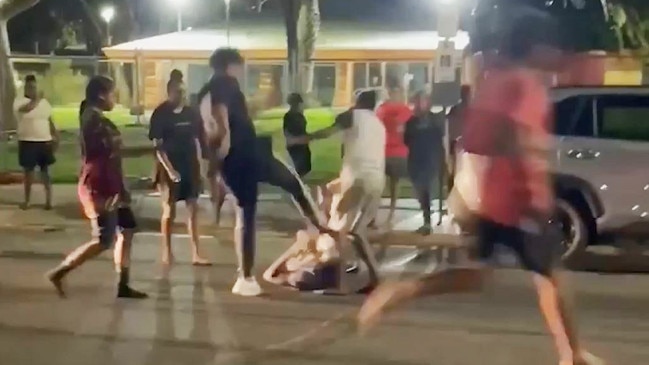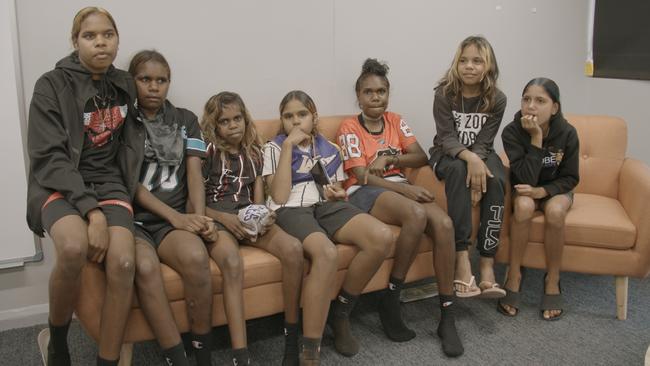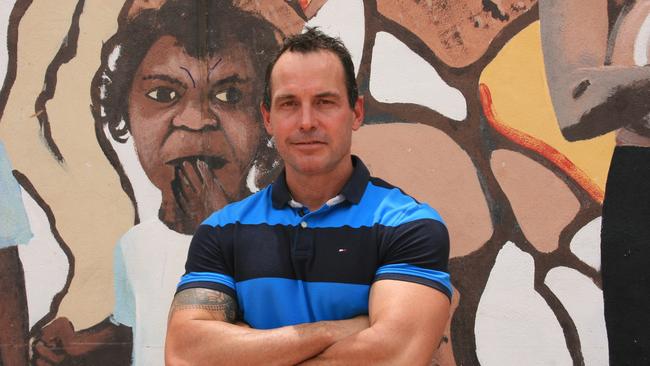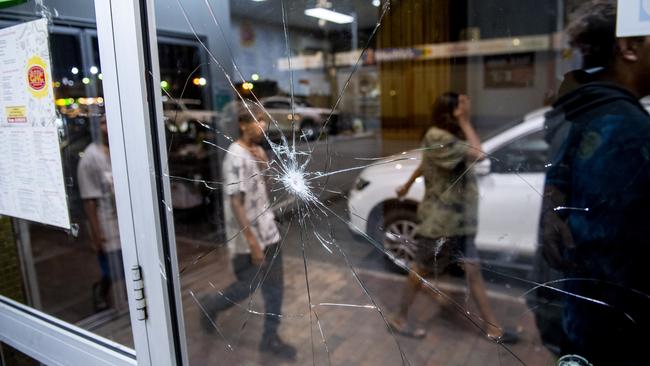Cry from the Heart: Alice Springs turns into a war zone at night
As the sun sets in Alice Springs, streets transform into war zones where drunks spontaneously break into fights as police do their best to control the mayhem and children walk calmly through the chaos around them. Watch episode 1 of Cry from the Heart here.
NSW
Don't miss out on the headlines from NSW. Followed categories will be added to My News.
The sun is setting in Alice Springs and you need to watch your back — the streets are transforming into a night-time war zone where drunk men and women spontaneously break into fights and police just do their best to control the mayhem.
At the nexus of this chaos are children — many as young as five or six — walking the streets entirely alone, sober and chillingly at ease with the violence taking place around them.
This young generation of Central Australians is rapidly escaping the loose grips of alcohol-dazed parents, concerned elders, and a resigned police force with fears they are heading towards a life spent as both victims and perpetrators of crime.
Their collective actions have brought this town under siege and forced Prime Minister Anthony Albanese to fly in under escalating scrutiny to announce immediate alcohol restrictions in January.
One month on, and there are now stringent, permanent grog bans on remote communities surrounding Alice Springs, similar to those imposed by the Howard government in 2007.

Locals have reported a decline in the groups of people congregating on the streets but say crime is still surging.
Deputy Mayor Eli Melky reported five government cars being stolen in recent days with one being found with 11 people inside — 10 children and one adult. He said the issue is a “long way from resolved”.
A lot has been written about the kids running amok in the heart of Australia but now a new series from The Daily Telegraph’s award-winning documentary team — Cry from the Heart — lifts the lid on what children growing up in Alice Springs are really dealing with.
A local school principal introduced The Telegraph to a group of young girls who call themselves the Black Socks Crew. The girls are not involved in crime but say they do head to the streets at night, prompting serious concerns for their safety.
“We have got reason to run amok in this town, everyone hates us and is racist,” one of the girls said.
“They call us little rats, little cockroaches, little black kids, little black beetles … they also call us little black socks ugly crew.
“It doesn’t make us feel good.”
They are referring to an onslaught of cruel comments online as the media and political spotlight intensifies on rising youth crime.
As for the reason they are not at home: “We feel bored at home … We don’t walk around all night. We walk around until 12 or 1 o’clock.”
When asked if the girls like spending time on the streets, some of the girls said “little bit” but in a quieter voice, others said “No”.

Pushed on where they would rather be, they said: “Home … safe”.
They all agree that if the school was open all night, they would prefer to be at school instead – an option that principal Gavin Morris is pushing for by converting his school, Yipirinya, to a boarding school.
The girls say they “run away” from their parents because they “feel bored” and want to use the free Wi-Fi at the town’s main shopping strip, Todd Mall.
However, Mr Morris said it’s heartbreaking circumstances at home which are forcing some children onto the street.

“What we are experiencing here in Yipirinya is a real spurt in terms of kids who are now on the street late at night or all night … walking around the streets until daybreak. They don’t go home because it’s not safe,” he said
“We are looking for the parents to step up, no questions about that, but for that we need to go to the root of the problem.”
His comments are corroborated by a damning report from Central Australian Regional Controller Dorelle Anderson.
Alcohol-related domestic violence offences increased by 96.7 per cent in the 12 months to November 2022.

“NT Police confirms that domestic violence call-outs is one of, if not, their biggest single job,” Ms Anderson wrote.
Alice Springs custodian Faron Peckham said it is conversations with kids like the Black Sock Crew that should be informing the government’s response to the crisis.
“I think we are not listening to the youth. We haven’t engaged the youth to really explore their voice” he said.
“There is a big reaction to what’s occurring and people are emotionally getting embroiled in it for good cause but …(no one is saying) let’s hear some of your stories.”


